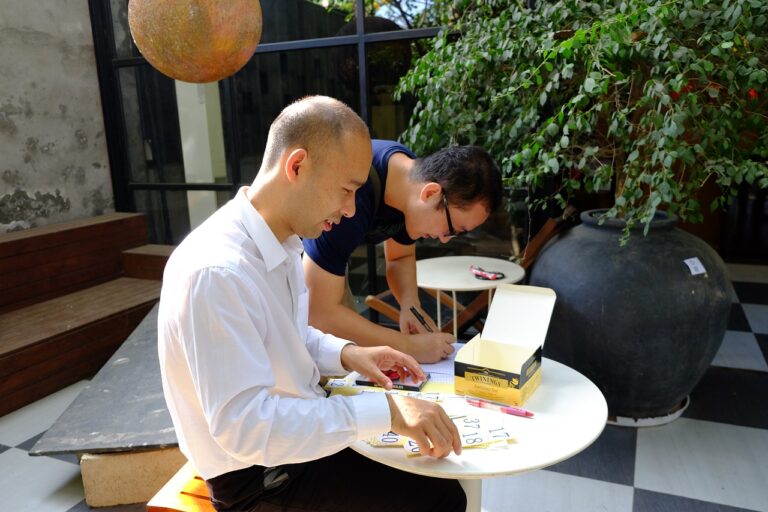The Role of Play in Language Development
11xplay id, laser247.com login, world777 sign up:The Role of Play in Language Development
Language development is a crucial aspect of a child’s growth and cognitive abilities. It enables children to communicate their thoughts, feelings, and needs effectively. One often overlooked but highly effective way to support language development in children is through play.
Play is a natural and innate behavior in children. It is how they explore the world around them, make sense of their experiences, and learn new skills. When children engage in play, they are not only having fun, but they are also actively building their language skills.
In this article, we will explore the role of play in language development and how parents and caregivers can support and enhance this process.
The Importance of Play in Language Development
Play is a powerful tool for language development because it is inherently engaging and interactive. When children engage in pretend play, for example, they are using language to create and act out stories, imagine different scenarios, and communicate with others. This type of play not only enhances their vocabulary and grammar skills but also improves their social communication and empathy.
Through play, children learn to listen and take turns, follow directions, ask questions, and express their thoughts and feelings. They also practice using different types of language, such as descriptive language, narrative language, and persuasive language. These skills are essential for successful communication in school, at home, and in social situations.
Types of Play That Support Language Development
There are several types of play that support language development in children. Here are some examples:
1. Pretend Play: Pretend play, also known as imaginative play or symbolic play, involves children using objects and toys to act out different roles and scenarios. This type of play encourages children to use their imaginations, create stories, and engage in dialogue with others.
2. Storytelling: Encouraging children to tell stories, either through drawing, writing, or verbal storytelling, helps develop their narrative skills. Storytelling allows children to practice sequencing events, using descriptive language, and creating characters and plotlines.
3. Singing and Rhyming: Music and rhymes are powerful tools for language development. Singing songs and reciting rhymes help children learn new words, practice pronunciation, and develop a sense of rhythm and melody.
4. Building and Construction: Building with blocks, Legos, or other construction materials requires verbal communication to plan, collaborate, and problem-solve. Children learn to use spatial language, directional terms, and size comparisons during building activities.
5. Outdoor Play: Playing outdoors, whether it’s at a playground, in a backyard, or in nature, provides children with opportunities to explore their environment, observe nature, and engage in physical activities. Outdoor play can spark conversations about the world around them and encourage children to ask questions and share their discoveries.
How Parents and Caregivers Can Support Language Development Through Play
As a parent or caregiver, you can play a vital role in supporting your child’s language development through play. Here are some strategies to consider:
1. Provide a Variety of Play Materials: Offer a diverse range of toys, games, books, and open-ended materials that encourage creative and imaginative play. Choose toys that promote language-rich activities, such as storytelling, role-playing, and problem-solving.
2. Join in the Play: Engage with your child during playtime by participating in their games, asking open-ended questions, and expanding on their ideas. Use play as an opportunity to model language skills, such as turn-taking, listening, and using descriptive language.
3. Encourage Conversation: Create opportunities for meaningful conversations during play by asking open-ended questions, encouraging your child to explain their actions, and actively listening to their responses. Validate their thoughts and feelings and provide feedback and support as needed.
4. Read Aloud: Reading aloud to your child is one of the most effective ways to support language development. Choose a variety of books with rich vocabulary, engaging storylines, and colorful illustrations. Encourage your child to ask questions, make predictions, and retell the story in their own words.
5. Limit Screen Time: While technology can offer educational benefits, it is important to limit your child’s screen time and prioritize hands-on, interactive play experiences. Screen time can hinder language development by reducing opportunities for face-to-face interaction and creative play.
6. Create a Language-Rich Environment: Surround your child with language-rich environments by labeling objects, discussing daily routines, and providing opportunities for new experiences and discoveries. Use language intentionally and purposefully to scaffold your child’s language skills.
FAQs
Q: What age should play-based language development begin?
A: Play-based language development can begin as early as infancy. Even babies engage in playful interactions with their caregivers, such as babbling, making eye contact, and imitating facial expressions. As children grow, play becomes more complex and varied, providing opportunities for language learning at every stage of development.
Q: How can I support language development through play for children with special needs?
A: Children with special needs may benefit from play-based interventions that are tailored to their individual strengths and challenges. Consult with a speech-language pathologist, occupational therapist, or developmental specialist for guidance on how to support language development through play for children with special needs. Adapt play materials and activities to meet your child’s specific needs and abilities.
Q: How much playtime is recommended for language development?
A: While there is no specific recommended amount of playtime for language development, experts suggest that children should have ample opportunities for unstructured play every day. Aim for a balance of indoor and outdoor play, individual and group play, and quiet and active play. Follow your child’s interests and allow them to lead the play while providing guidance and support as needed.
In conclusion, play is a powerful tool for language development in children. By creating opportunities for play-based learning, parents and caregivers can support their child’s language skills, foster creativity and imagination, and enhance their overall communication abilities. Remember to make playtime fun, engaging, and meaningful, and watch as your child’s language abilities flourish.







